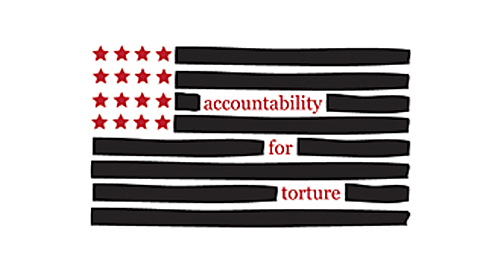
Last night former CIA chief Jose Rodriguez appeared on to promote his new book defending his role in the CIA's torture program and his decision to order that tapes of the torture sessions be destroyed. While Rodriguez regurgitated his anticipated justification, 60 Minutes correspondent dogged him with evidence that torture hurt U.S. intelligence gathering and questioned whether the use of torture threatened to undermine fundamental American values.
The interview affirmed the impression that the CIA's use of crude force in interrogations was pursued with little thought to the program's moral implications, potential costs to the country or even to the techniques' effectiveness. If as much time and effort had been spent considering these essential questions as was spent on creating the web of legal defenses for torture, which Rodriguez described, this dark period in American history could've been avoided.
Too Much Imagination
In setting up last night's interview, Stahl highlighted Rodriguez's lack of experience in counterterrorism and the Middle East when he was appointed Chief of Staff of the Counter Terrorism Center directly after 9/11. Last week the Washington Post's Dana Priest reported that Rodriguez appeared to be "" when she met him in 2005. A similar description could be used to characterize the CIA when it established an interrogation program in 2001-02 despite its and institutional expertise in the field.
The agency may have had little experience in interrogation, but last night Rodriguez said that the CIA had "no lack of imagination." Perhaps it was the reliance on "imaginations" that led CIA officials to craft an interrogation program based upon the advice of ex-Air Force psychologists who had over the objections of veteran trainers who that the methods were ineffective at eliciting accurate information.
It may also have been "imagination" that led officials to dismiss then-Secretary of State Colin Powell's warnings of the of not applying Geneva Convention protections of those in U.S. custody which he argued would "undermine public support among critical allies, making military cooperation more difficult to sustain" and have "immediate adverse consequences for our conduct of foreign policy."
The Price Paid for False Intelligence
Throughout the 60 Minutes piece, Rodriguez repeatedly made unsubstantiated assertions that the torture program was worth the costãthat it saved lives. His responses to Stahl's numerous references to mounting documentation that CIA cruelty harmed intelligence gathering efforts were ripe with profanities but lacking in persuasive evidence.
Reuters recently reported that an ongoing extensive Senate Intelligence Committee investigation into the CIA interrogation program has found that cruel interrogations have resulted in counterterrorism breakthroughs. In a released this morning Sens. Carl Levin, Chair of the Armed Services Committee, and Dianne Feinstein, Chair of the Intelligence Committee, lay out the myth propagated by Rodriguez that CIA torture led to the location of Osama Bin Laden and dismantle it point by point with the facts. Levin and Feinstein state:
We are disappointed that Mr. Rodriguez and others, who left government positions prior to the UBL [Usama Bin Laden] operation and are not privy to all of the intelligence that led to the raid, continue to insist that the CIA's so-called 'enhanced interrogation techniques' used many years ago were a central component of our success. This view is misguided and misinformed."
Even Michael Hayden, former CIA director appointed by George Bush has stated: "I'm willing to concede the point that while they were, for example, being waterboarded."
In fact, substantial evidence suggests that the use of cruelty was counterproductive. A seasoned counterterrorism agent reportedly that following false leads generated through torture has caused waste and exhaustion and consumed "[a]t least 30 percent of the F.B.I.'s time, maybe 50 percent, in counterterrorism." According to another former intelligence official "[w]e spent millions of dollars chasing " because of the CIA's insistence that coercive interrogation techniques be used against Abu Zubaydah.
Rodriguez's nuanced response to this claim: "Bull sh*t."
And the cost of using torture went beyond wasted resources, damaging the standing of the United States and undermining its counterterrorism efforts. As a concluded in 2010: "The fact that America is seen in a negative light by so many complicates our ability to attract allies to our side, strengthens the hand of our enemies, and reduces our ability to collect intelligence that can save lives." Philip Zelikow, former deputy to Secretary of State Condoleezza Rice, described the measurable impact on U.S. counterterrorism efforts when he stated: "When I worked at the State Department, some of America's best European allies found it to assist us in counterterrorism because they feared becoming complicit in a program their governments abhorred. This was not a hypothetical concern."
Considering the Bottom Line
From last night's interviewed it appears Rodriguez has given little thought to the real world costs of the CIA torture practices he oversaw. And why would he? There is no indication that any government official will be held to account despite the creation of a CIA interrogation program that employed crude, ham-handed illegal techniques known at the time to be ineffective and which unsurprisingly resulted in no actionable intelligence at great cost to American national standing and intelligence-gathering capability.
Until officials like Rodriguez are held accountable, the risk remains that the U.S. officials will forget essential lessons learned and return to cruel techniques. Running such a risk is unacceptable. The United States cannot afford to repeat past mistakes when it comes to torture. The cost, as we've seen, is simply too high.
Learn more about torture: Sign up for breaking news alerts, , and .

